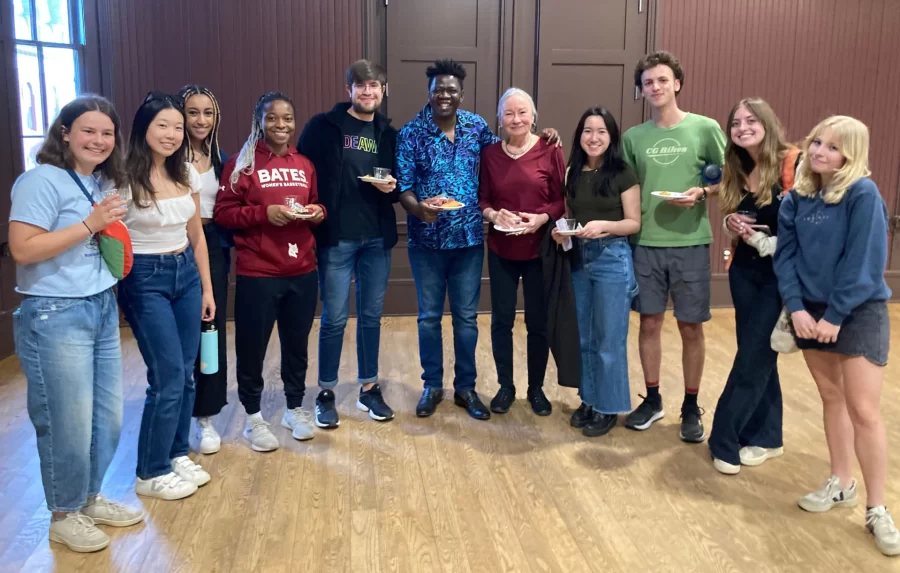Parlez-vous français?
In a classic “win-win” community-engaged learning moment, students in Professor Mary Rice-DeFosse’s “French in Maine” course hosted members of the local Franco-American community and “New Mainers” from the Congo for an evening of shared learning and conversation about the role of language in forging relationship and community. Gathering at the Lewiston Public Library this past Wednesday evening, a capacity crowd watched the short film, “The Intersection / Le Carrefour,” about the bond of cross-cultural friendship and understanding forged between Cecile, a long-time Lewiston resident with Franco-American roots, and Trésor, a more recent resident from the Democratic Republic of Congo. Thanks in part to meeting Trésor, Cecile finds her interest and pride in her Franco heritage reinvigorated. For Trésor, Cecile becomes a conduit of understanding and belonging as he and his family settle into a new life in Lewiston. In addition to the Bates students and dozens of Franco-Americans and other attendees, both Trésor and Cecile attended the film viewing. A lively Q&A time followed the film, along with both French- and African-themed refreshments. One student reflected on the experience: “It was really cool to see Franco-Americans and new immigrants in the community see their experiences memorialized and vindicated in the film. When the microphone was passed around and people shared their stories, I was able to put faces to the class content I had been exposed to for the semester.”

The evening was the culmination of a semester-long community-engaged learning course in which Professor DeFosse’s students put their French to use in local settings. The course was developed with generous support from the Mellon Periclean Faculty Leaders program. Some students partnered with the Lewiston Public Library and the Adult Learning Center in Lewiston to offer weekly language classes with adult English Language Learners from French-speaking countries like the DRC, with half the class conducted in English and half conducted in French. Other students took on different projects with additional community partners. Read more about the students’ community work in this Franco Center press release. When asked to describe the benefit of community-engaged learning, one student noted, “I was able to to directly connect what I learned about the Franco-American experience in class to my interactions with individuals in the wider community. This not only enhanced my understanding of the course material but it also increased my interest in the class.” Another added, “It was exciting to practice speaking French and also rewarding to be able to help some people with their English speaking skills.” More than twenty other community-engaged learning courses also wrapped up their work last week, with numerous academic departments and programs represented, including Politics, Education, Theater, Sociology, Psychology, Education, Earth and Climate Science, Digital and Computational Studies, Classical and Medieval Studies, Biology, English, and Physics and Astronomy.